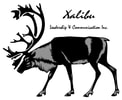|
It actually takes three or four seconds to ask, “Do you have one second for a quick question?”
That should be your first warning. The truly “quick question” needs no wind-up-- you just pop it: “Got change for a twenty?” “Going to the game tonight?” Those are fair quick questions, and they have quick answers. But when the questioner needs to soften you up with a preface, there’s generally a reason for it-- he knows that even if the question may be quick, the answer won’t be. That’s bad enough. Worse, the questioner usually takes a positive answer as license to unfurl a conundrum worthy of the Senate. Your time is going to get robbed, and you know it. For a professional, though, there is a far more sinister threat. More often than not you are being approached with the “quick question” because of your training and experience. Implicit in the “quick question” is that you will deliver an accurate professional opinion in an informal setting at no charge, but one upon which the questioner will rely to make some important decision. If your advice works, nobody remembers-- it was a “quick question”. But if it doesn’t, you’ll be blamed. In fact, even if your advice was sound, but misapplied or misapprehended, you’ll still be blamed. Because of the informal setting you’ll likely have no record, and probably no recollection. The listener, of course, will have a clear recollection of what was said, what he thought was said, or at least what he wants to remember was said. For professionals, there’s another problem with the “quick question”-- there is no such thing as a safe “quick answer”. If you don’t take the time to quiz the questioner to be sure he or she understands his or her problem, you may be giving an answer to a question he or she doesn’t even know he or she has. It will surely be misapplied, to your chagrin. As a professional, you are going to see nuanced issues that the “quick questioner” probably doesn’t want to hear about. If your answer is complete, qualified and useful, it won’t be quick. If it isn’t complete, qualified and useful, you may as well hand over your wallet and throw your certificates out the window. A greater abomination, the sinister bastard child of the "quick question" is the "quick question for a friend of mine". All of the evils mentioned here are about to be alloyed with hearsay, the outcome of which will be Shakespearean in dimension. Given the time demand and professional risk inherent in the “quick question”, you should develop a “quick response”, tailored to your personal and professional circumstances, which politely, gently yet firmly requires the questioner to come into your professional zone. Whether or not you bill for your time is up to you, but at least insist that your professional advice is given in a professional setting.
1 Comment
Carol Laidlaw, Wealth Advisor CPA, CFP
6/1/2017 11:19:36
Happened to me at least three times over the holiday. It is more difficult when the asker is a friend. Here is my quick answer to "I'm worried about retirement and and I don't know what to do":
Reply
Leave a Reply. |
AuthorNorman Bowley teaches the Alignment Doctrine and the Client Code-- secrets to building the professional practice you and your clients deserve. Archives
September 2020
Categories |
-
Home
- Video >
-
Communication
>
- Elements >
-
Modules
>
-
Modules A-M
>
- Avoiding amateurism
- Change: Understanding It, Facing It, Profiting From It
- Communication for Long Term Relationship
- Communications Horror Stories
- Communications that blow up in your face
- Communicating toward success
- Earning the Right to Be Heard
- Gerunds, Mesolects and Other Arcane Terms of Art
- Having a Toad Day
- Healthy Fear
- Hippos and Raccoons-- Deadly Underestimation
- How I Moved From Doing What I Liked to Doing What I Loved
- How to Be on the Same Wavelength as Your Audience
- How to Pick Up a Porcupine-- Dealing With Difficult People
- Key of Trust
- Manipulation
- Mastering the Technologies
- Mining the Subconscious
-
Modules N-Z
>
- Quick and Dirty-- the 80/20 Rule
- Sabotaging Your Message
- Scar Tissue
- Secrets of the Druids
- Some Specific Approaches to Communications
- Specific audiences
- Symbolism-- the Heart of the Communicative Process
- Talking to Yourself and Why You Should Do It
- The Difference Between Leadership and Management
- The Eyes Eat First
- The Eyes Have It
- The Lizard Within-- What Your Reptilian Brain Makes You Do
- The Media of Communication
- The Respect Deficit
- The Secret of Authenticity
- Thinking About the Kinds of English
- Websites, Blogs and Newsletters
- When you don't have time to plan
- When You'd Rather Shoot Yourself
- Who's your audience? Targeted communication.
-
Modules A-M
>
- About us >
- Norman Bowley
- FREE
- Services
- Testimonials
- Blog
- FREE
Proudly powered by Weebly

 RSS Feed
RSS Feed